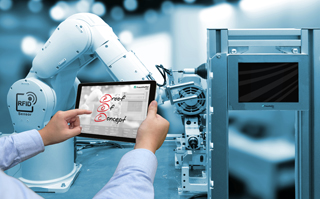
Fraunhofer IPMS presents its expertise in the development and implementation of wireless and battery-free RFID sensor systems at the 2017 SPS IPC Drives event in Nuremberg.
more info
Fraunhofer IPMS presents its expertise in the development and implementation of wireless and battery-free RFID sensor systems at the 2017 SPS IPC Drives event in Nuremberg.
more info
Developers at the Fraunhofer IPMS are throughly convinced that Li-Fi technology, the use of light to exchange large amounts of data, will soon become stiff competition to the Wi-Fi networks currently used in industrial environments. In addition to allowing different users to simultaneously use an access point, the IPMS-developed optical transmission technology also enables each user to communicate with several access points. Therefore, Li-Fi is no longer limited to stationary applications. Fraunhofer IPMS specialists will present this multipoint-to-multipoint-capable technology to the professional public for the first time at the 2017 SPS IPC Drives in Nuremberg from November 28-30.
more info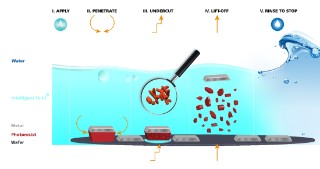
In cooperation with the Fraunhofer IPMS Center Nanoelectronic Technologies (CNT) and local microchip manufacturers, Leipzig-based intelligent fluids GmbH (formerly known as Bubbles & Beyond GmbH) has qualified innovative and environmentally-friendly cleaning solutions for industrial volume production.
more info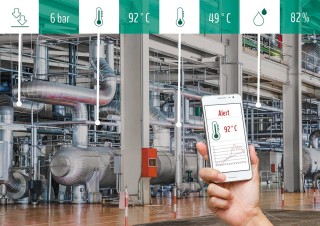
RFID has long been established as the solution for the identification of wares and goods. The radio-based identification technology is, however, capable of much more. Coupled with sensors, RFID solutions will optimize future work processes in production, material flow and logistics. A team from Fraunhofer IPMS in Dresden will be presenting its sensor-equipped RFID evaluation kit at the 2017 „RFID & Wireless IoT tomorrow“ event to be held in Düsseldorf from 27. to 28. September.
more info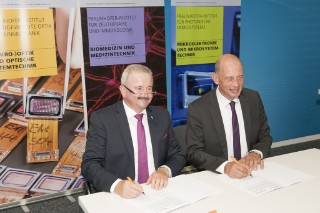
A new project center for multidisciplinary work in the sector of microelectronic and optical systems for biomedical applications is being created in the German state of Thuringia. Three Fraunhofer Institutes, which cover the disciplines of biosciences, microelectronics, microsystems technology, optics and photonics, will be researching new biomedical applications in close collaboration with industry. In order to set up the project center, the state of Thuringia today signed a joint founding agreement with the Fraunhofer Society.
more info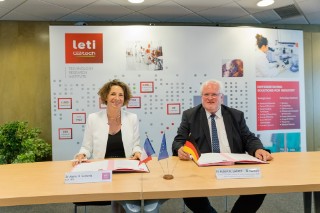
First Focus Will Be on Extending CMOS and More-than-Moore Technologies for Next-generation Electronic Components; New Technologies Will Be Available to Companies Across Europe.
more infoNew IEEE 802.1AS AVB/TSN and SENT/SAE J2716 Cores now available; CAN/CAN-FD Controller Core now supports AUTOSAR-compliant time-stamping
more info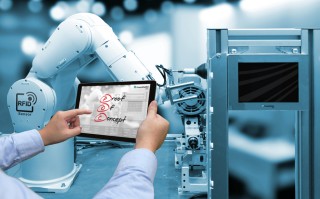
Increasingly more companies rely on RFID technology in industrial sensor networks to replace bulky sensor nodes of conventional battery-powered systems with compact, maintenance-free sensors. At the same time, there is the desire to automatically feed acquired logistics and production data into the web in order to be able to remotely organize complex production processes or to allocate resources in real time. With RFID evaluation kits and accompanying services, Fraunhofer IPMS provides customers a Proof of Concept as the perfect introduction to the use of RFID-based sensor nodes. Visitors to the 2017 Sensor and Test Measurement Fair in Nuremberg can learn more at the special "Networked Measurement Technology for Mobile Applications" forum to be held in Hall 5-106 / 115 from May 30th to June 1st.
more infoTo reinforce the position of Europe’s semiconductor and electronics industry within global competition, eleven institutes within the Fraunhofer Group for Microelectronics have, together with two institutes within the Leibniz community, come up with a concept for a cross-location research factory for microelectronics and nanoelectronics. The Federal Ministry of Education and Research (BMBF) is providing support with the necessary investment. On April 6, 2017, Education Minister Professor Johanna Wanka handed over the grant approvals – 280 million euros for Fraunhofer and 70 million euros for Leibniz.
more infoThe Fraunhofer Institute for Photonic Microsystems IPMS is starting the two-year CONSIVA research project focusing on the development of micro-energy harvesters for self-sustaining, integrated chip systems. The use of novel piezoelectric materials in vibration-based harvesters can drastically reduce their size and significantly prolong operation time. This paves the way for the utilization of previously unachievable medical implants and increasingly small, wireless sensor systems.
more info